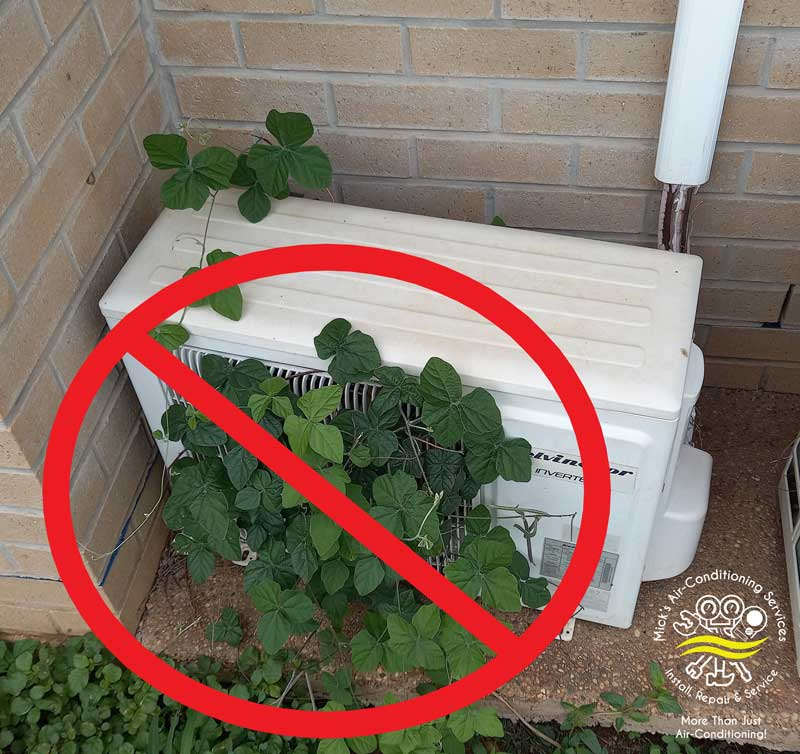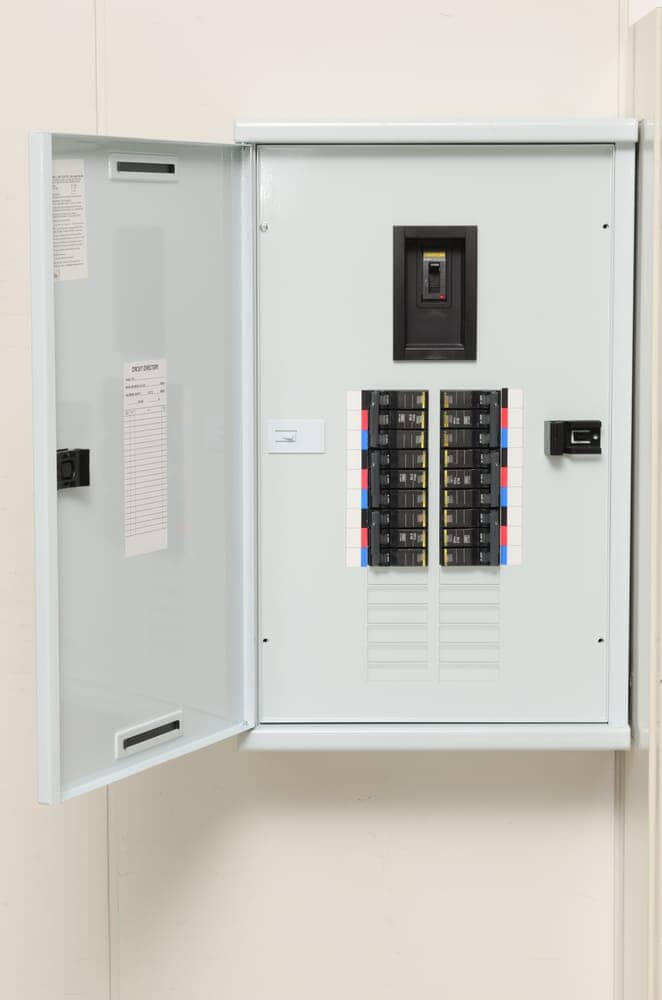Helpful Tips In Gracemere & Surrounds
Care & Maintenance
Read through our helpful tips on how to protect your appliances to save you both time and money. Run your whitegoods, heating and cooling systems more efficiently by using our general tips and advice.

Whitegoods Usage
Washing Machine Tips
Avoid Over-loading your machine
Not only will this mean your clothes don’t clean as well but it also puts extra strain and therefore wear and tear on your machine.
Clean your machine
On a regular basis give your washing machine a clean – just like you clean your kitchen sink or bath tub the washing machine also builds up soap scum and grime. There are many methods to clean your machine but I like to wipe over where I can see and reach and then put some bicarb soda (1/2 cup) in the soap dispenser and some vinegar (2 cups) in the bowl and then run through a hot wash (with nothing in the machine). Some machines also have an easily removed agitator which allows you to clean underneath and inside it. Also clean any filters regularly, including the little filters in your inlet hoses.
Check all pockets
It’s important to always check pockets before placing items in the machine and use a laundry bag for bras or items with embellishments on them. Small items can not only cause blockages in the hoses/pumps but can also get stuck between inner and outer bowls causing damage.
Use Surge Protection Device
Plug your machine into a surge protection device to minimise risk of damage caused by incoming power issues.
Avoid Fabric Softeners
Although they smell nice and may make your towels soft and fluffy, they can actually cause faults with your machine! If you do use them, make sure you clean your machine more regularly or use an alternative such as vinegar in your wash. You’d be surprised just how much fabric softener can build up in a machine which can result in out of balance issues, marks on your clothes and in some cases blockages in drainpipes.
Use correct amounts of detergent
Many people think they are doing the correct thing by following the directions on their detergent packages HOWEVER did you know that many of the washing machine manufacturers actually advise to start with using half the amount and then adjust according to your needs (and always use the measuring scoop). Remember detergent companies are in the market of selling detergent so they need you to use more.
Use the correct cycle
Washing machines are very smart these days, using the correct cycle for the type of clothes/washing can not only save you time but also be better for what you are washing e.g. a more gentle wash, different temp, slower spin. Also, when using your machine to its fullest capacity check your manual to see if there is a recommended cycle – quite often the maximum capacity is only suitable for one particular cycle.
Dryer Tips
Clean your lint filter after every use.
For faster drying and fewer creases you need to put less in per load.
Where possible clean underneath/behind your dryer to prevent a buildup of dust and therefore a fire hazard.
General Tips
Make your user manuals your best friend! Many people don’t use their appliances to their full potential.
Dishwasher Tips
Scrape off food particles before washing. Don’t overcrowd the dishwasher – hand washing a few items is better than redoing the entire load.
Clean your dishwasher on a regular basis, including the door seal – use a cup of vinegar in an empty dishwasher and let run for a few wash cycles.
Use detergents as directed and follow both manufacturer’s and detergent advice. Note some detergents are not suitable for all machines so you may need to trial and error what works best.
Energy Saving Tips
Turn appliances off at the wall when not being used – remember they will still be using stand-by power. If not using your a/c systems for extended periods of time these can be turned off at the circuit breaker or isolation switch.
Maximise your energy efficiency of your air-conditioning by sealing air-gaps, using curtains and closing off extra rooms. You could potentially save around 20% of heat being lost through drafty, ill-fitting doors and windows.
In Summer, set your air con temps to 25deg or above and during Winter choose the lowest comfortable temperature e.g. 20deg.
Wash clothes in cold water and use the sun to dry clothes whenever possible.
If you are going away for an extended period consider turning off your hot water system and other major appliances.
Newer fridges can use up to 40% less energy than those over 15 years old, so consider whether it’s time to update your fridge.
Fridge door seals should be completely airtight. Test by closing the door over a piece of paper so that it's half in and half out of the refrigerator. If you can pull the paper out easily, the hinge may need adjustment, or the seal may need replacing.
If possible, locate your fridge in a cool place away from the oven and the sun.
An insulated ceiling can make a big difference to your energy bills. Effective ceiling insulation can save you up to 20 per cent on your cooling and heating costs.
When using your dishwasher or washing machine use efficient cycles e.g. quick cycles, water saving, and full loads where possible.
Change to energy saving light bulbs and turn lights off when not being used.
Always look at the star rating when buying whitegoods. Try not to go below 4 Energy Stars if it’s within budget. Short term expense can result in long term savings.
Before Calling A Repairer
- Check your date of Purchase, Model number & Serial Number.
- Is it still within ‘Express’ or ‘Manufacturer’s’ Warranty?
- Do you have any extended warranty?
- Or does your repair fall under Australian Consumer Law for repair?
**If under any form of warranty contact the manufacturer or extended warranty company to find out their procedure for initiating a repair – some will take your details, along with the appliance details (model, serial number, purchase date) and lodge a job with their local repairer and others will provide you with a service agent details for you to contact the repairer yourself.
***Common warranty periods (these may differ so always check your paperwork or with the manufacturer)
Air-Conditioners – 5 Years
Fridges, Washing Machines, Dryers & Dishwashers – 2 years
****Also, be aware of the terms and conditions of your warranty, if an issue or fault is outside of these terms you will be required to pay for any call out, inspection or diagnostic costs.
Air-Con Quoting Help
1. Arctick Licence - this may be a full licence or a restricted licence which only allows them to install certain types of a/c & perform certain tasks. On the back of the licence will detail what that licence allows. It is important to note that automotive refrigeration requires a separate licence (i.e. a full licence does not allow the tradesperson to work on automotive air-conditioning).
http://www.lookforthetick.com.au/licence-check/
2. QBCC Licence https://www.qbcc.qld.gov.au/licensee-search
3. Electrical Contractors Licence - In order to install new wiring and run new interconnects a Full Electrical Contractors Licence is required which is why many refrigeration mechanics will subcontract or work alongside a fully qualified electrician with the appropriate licence. If a refrigeration mechanic is conducting repairs on your system, they must hold a Restricted Electrical Contractors Licence. https://fswqap.worksafe.qld.gov.au/elis/
You can do licence checks on the corresponding web pages to see if there are any restrictions or to make sure the licences are current.
https://fswqap.worksafe.qld.gov.au/elis/
http://www.lookforthetick.com.au/licence-check/
https://www.qbcc.qld.gov.au/licensee-search
Get Ready For Summer
GET READY FOR SUMMER #1
Clean your air-conditioning filters and if needed have your A/C professionally cleaned. Make sure the outdoor unit is clean and clear of grass and plants. Make sure there is nothing obstructing airflow.
GET READY FOR SUMMER #2
Make sure your gutters are clean both in preparation for those summer storms but also to minimise bushfire risk.
GET READY FOR SUMMER #3
Trim and tidy the garden now and apply a thick mulch to make things easier to maintain over Summer. (Don’t forget to give it a good water before layering the mulch).
GET READY FOR SUMMER #4
Defrost and clean out your fridge and freezer – defrosting means your appliance will run more efficiently.
GET READY FOR SUMMER #5
Check the use by dates on your sunscreens and refresh stocks.
GET READY FOR SUMMER #6
Clean and test the pool water so it’s ready to go as soon as that first hot day hits.
GET READY FOR SUMMER #7
Get in the habit of taking a water bottle with you when you go out, to stay hydrated during our hot Summer days.
Site Links
Licenses
QBCC - 15009823
Electrical Contractors Licence - 80519
Arctick Trading Authority Licence - AU40254
Arctick Refrigerant Handling Licence - L040709
Trading Hours
- Monday
- -
- Tuesday
- -
- Wednesday
- -
- Thursday
- -
- Friday
- -
- Saturday
- Closed
- Sunday
- Closed
Appointment Times
- Monday
- -
- Tuesday
- -
- Wednesday
- -
- Thursday
- -
- Friday
- -
- Saturday
- Closed
- Sunday
- Closed
Company Information
Social Media
CALL US TODAY







